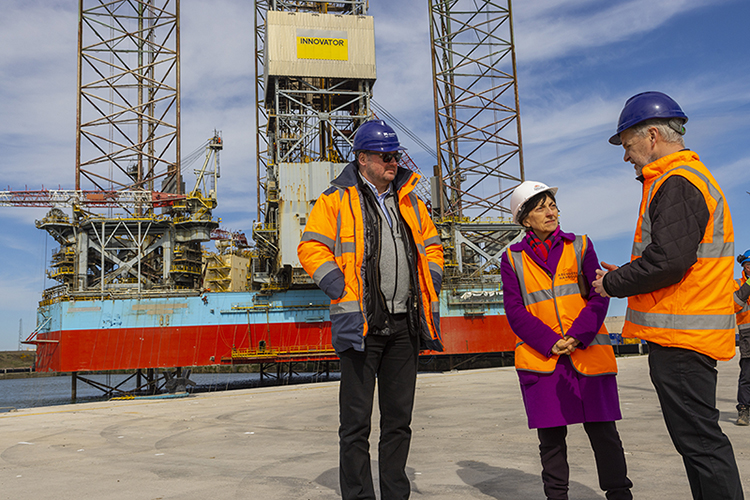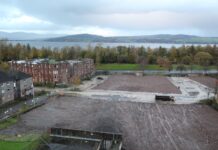
DR Janet Young, director general of the Institution of Civil Engineers (ICE), has praised the work being done to support the transition of the north east of Scotland into a globally integrated energy cluster.
Dr Young visited Aberdeenshire to see the work currently taking place to help meet Scotland’s target of net zero emissions by 2045. She toured Peterhead Power Station to learn about the existing site and Peterhead 2 – a proposed decarbonised power station using Carbon Capture and Storage (CCS) or hydrogen solutions, linked to project ACORN.
Earlier this month, the UK Government stated that Project ACORN was a ‘leading contender’ to receive a share of the £20 billion funding earmarked for CCS projects. The proposal involves piping waste CO2 from the existing refineries at Mossmoran and Grangemouth and the proposed new power station at Peterhead using redundant pipelines which previously carried natural gas south, to take greenhouse gas emissions and store them in depleted gas reservoirs under the North Sea.
Dr Young also visited Aberdeen’s £400 million South Harbour expansion – the largest marine infrastructure project in the UK for decades. The deepwater facility is targeted at oil, gas and renewables decommissioning, offshore wind and marine renewables.
Speaking afterwards, Dr Young said, “The scale of these projects is impressive, highlighting the role civil engineers and infrastructure plays in the transition to the UK and Scotland’s net zero future. Peterhead Power Station illustrates the evolution of power generation from oil to gas and now potentially carbon capture and the new Aberdeen South Harbour expansion is a brilliant example of new infrastructure to cater for decommissioning, offshore wind and marine renewables.”








